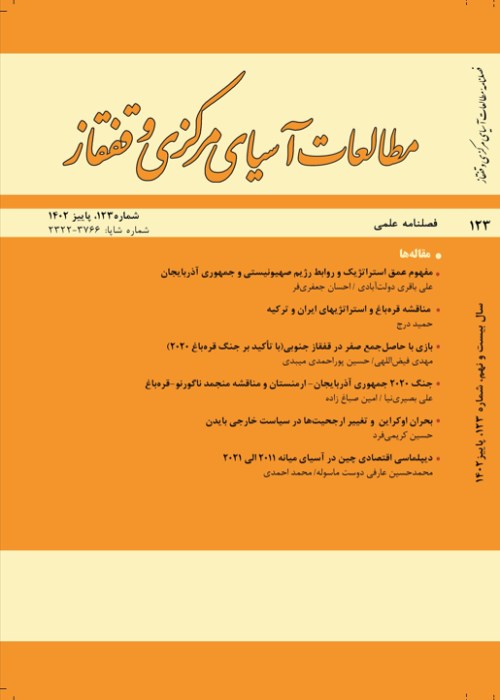An Analysis on the Conflict of Donbass from The Prism of International Law
As the Euromaidan movement turned into the 2014 Ukrainian revolution and resulted in the removal of the Yanukovych government, concurrent Anti-Maidan and pro-Russian protests in some southern and south-eastern regions of Ukraine escalated into separatist movements culminated in the outbreak of the armed conflict in Donbass that eventually concluded in the self-declared independence of the Donetsk People's Republic) DPR (and Luhansk People's Republic) LPR). In fact, in addition to provoking the emotions and dynamics of the past four frozen conflicts in the post-Soviet era, including the Nagorno-Karabakh; the Republic of South Ossetia; Abkhazia; and Transnistria, this crisis added a new dimension to them. The purpose of this paper is to explain and evaluate the Donbass conflict from the prism of international legal order. And the issue this paper addresses is, about the stance of the international legal regime towards the legitimacy of the independence declaration of Donetsk and Luhansk Republics as well as the lawfulness of their recognition by other state. The hypothesis examined is that due to “the lack of evidentiary prof of injustice claimed against the Ukrainian government, lack of prerequisites of remedial Self-Determination, the violation of various principles of international law, the lack of the possession of statehood standards, the two enclaves’ declaration of independence is void of any legitimacy and since they are terrorist-like organisms within the sphere of competence and authority of the Ukrainian government, recognition of these enclaves as republics is considered to be an act of interference in the internal affairs of Ukraine, is illegal and recognizers shall bear international responsibility for their acts.” To this day, the legal reading of the illegality of the recognition of these two republics in a state of de jure adaptation has been compatible with the political performance of states, and these two entities have not been recognized by any independent sovereign state. In this paper a descriptive-analytical method has been applied and in the process of examining the mentioned hypothesis, an inductive methodology has been utilized. The theoretical foundations of this paper are the conceptualization of frozen conflicts and assessing the legitimacy of the separated states’ declaration of independence during these conflicts.
- حق عضویت دریافتی صرف حمایت از نشریات عضو و نگهداری، تکمیل و توسعه مگیران میشود.
- پرداخت حق اشتراک و دانلود مقالات اجازه بازنشر آن در سایر رسانههای چاپی و دیجیتال را به کاربر نمیدهد.


